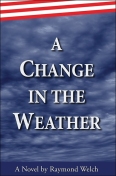I heard former President Jimmy Carter on NPR yesterday morning. I’ve always admired him. He’s a person of true principle and high moral integrity, a humanitarian, a Nobel Peace Prize recipient and, at age 89, as sharp and engaged as any human could possibly be, regardless of age. He’s a great man who has done great things.
But his failed presidency was pivotal in the climate crisis. That’s a cruel irony for the man who, in the 1970s, declared the energy crisis to be the “moral equivalent of war.”
Our climate would be in crisis with or without him. But if he had done things slightly differently, on any number of issues, Ronald Reagan wouldn’t have become president at the precise moment in history when his pro-oil free-market ideology could do the most harm. If Carter had been re-electable in 1980, we might have been well on the way to weaning ourselves off of fossil fuels years ago.
Reagan famously removed the solar panels that Carter installed at the White House, a symbolic act of contempt towards Carter, alternate energy and government involvement in it, and liberalism in general. We’re still living with the hangover.
Reagan was reacting to Carter’s dour earnestness as much as anything. The cheesy theme of his election campaign, “Morning in America,” was a repudiation of Carter’s call to do with less. Carter, wearing a cardigan, appeared on tv to impose the new, low national speed limit of 55 mph and to exhort us to set the thermostat at 65 degrees and put on a sweater. Carter told us we were in an age of limits.
This was an affront to the Reaganesque notion of an America of God-ordained, ever-expanding prosperity.
Carter did all kinds of things that insulted the America of Reagan. He was unable to solve “stagflation”—low growth and high inflation. He put price controls on oil. He championed human rights—to some, at the expense of the national interest. He gave the Canal back to Panama. In those post-Vietnam, post-Watergate days, he spoke of “malaise.” He dithered as the Russians invaded Afghanistan. But worst of all, he failed to rescue the hostages from Iran.
The climate crisis didn’t come into focus until the end of Reagan’s second term with James Hansen’s Senate testimony. In hindsight, Carter’s call to conserve was right. He was the mature adult facing reality, and Reagan the nostalgia-besotted romantic yearning for a future past. But Carter never convinced the country because he was something of a scold, and nobody likes a scold.
A lot of people trying to rally climate awareness today are in Carter’s position. How do you inspire the nation to address the problem without harping on the negative? The awful facts have to be faced.
I think one difference is just that—we have a more compelling fact than Carter did: the fact of climate change itself. The market solved the oil shortage for a while. Oil got ridiculously cheap and plentiful in the 80s. (That was the last great binge, though. We’ve squandered our endowment of easy oil.) But the market can’t solve the climate crisis any more than it could have solved the Iranian hostage crisis. We need a decisive national energy policy—something else Carter tried to establish when he created the Department of Energy.
The market can help, once we have a policy. A revenue-neutral carbon tax can align incentives to reduce carbon, increase conservation, create alternative energy sources and, not incidentally, jobs.
Now, how to persuade people of the urgency of the situation without being a scold?


